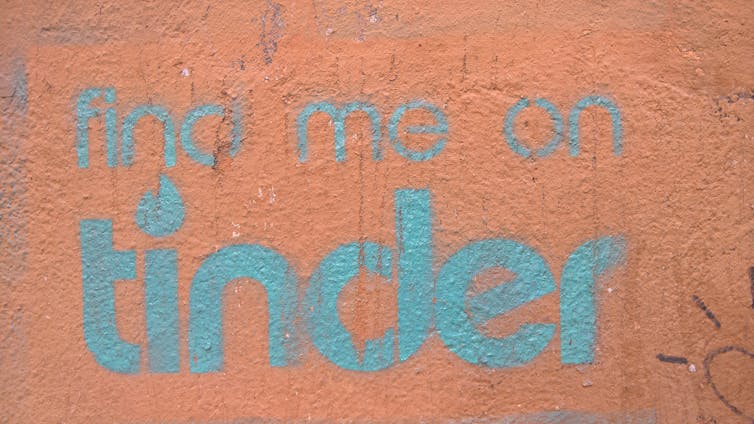Online dating is an increasingly popular way for people to find love, but that also makes it an attractive target for those with less than romantic intentions.
Figures from the Pew Research Centre show that since 2013 the number of 55-64 year olds using the internet to find a partner has doubled, and for 18-24 year olds the number has nearly tripled.
There are many advantages of online dating, such as a wider network of potential romantic partners and the opportunity to engage in social interactions with less discomfort.
But our research, published in Personality and Individual Differences, found that some people who use these methods of finding love have a far more antisocial agenda.
I’ve already discussed how internet trolls in general are more likely to be male, and are more likely to have higher levels of “darker” personality traits, including nonclinical psychopathy and sadism.
In addition, these internet trolls are likely to be motivated by negative social rewards, meaning they are reinforced by creating a disruptive social environment.
But our new research shows trolls also pose a real threat to online dating, marring a potentially positive social (and even romantic) experience.
The dating ‘troll’
There are plenty of websites and platforms for online dating such as eHarmony and RSVP.
Mobile phone apps for dating have also gained popularity. Some of these apps primarily focus on enabling local, immediate social (and sexual) encounters. They differ from traditional online dating sites, which commonly encourage longer-term courtship and online communication.
We decided to focus on Tinder, one of the most well-known dating mobile phone apps for Apple and Android devices. Tinder says it helps generate 26 million matches a day.
In our study, 357 adults from across Australia with experience of Tinder completed an online questionnaire that assessed their personality traits and behaviour on the dating app.
For example, participants were asked if they had trolled people on the app, sent any shock comments for a laugh, or if they enjoyed “griefing” other people who access the app.
These slang words were chosen as they are commonly used in trolling culture.
Supporting the previous research, we found that individuals who trolled on Tinder scored significantly higher on dark traits such as psychopathy and sadism. Tinder trolls also had levels of dysfunctional impulsivity, suggesting that this behaviour could also be difficult to control.

Sexes compared
We found that women and men were equally likely to troll others on this dating app. This was unexpected, as previous research on trolling has consistently found that men troll more than women.
So we considered the possibility that men were perhaps trolling less frequently on these apps, and thus would have lower trolling scores (akin to women). But further analyses showed this was not the case. Women’s trolling behaviour increases on Tinder, and becomes similar to men’s trolling behaviour.
Previous studies on trolling behaviours show that men troll more than women in online forums, gaming and even Facebook. It’s unclear at the moment as to why women are engaging in similar amounts of trolling behaviours as men are on Tinder.
One possibility is that women are engaging in higher rates of trolling. For example, on the social media platform Twitter, women are just as likely as men to use derogatory language such as “slut” and “whore”.
Perhaps Tinder users are viewed as easy trolling targets, due to the “desperate” stigma that some people still associate with online dating.
Considering the easy and free access to Tinder (although there is a paid Tinder Plus option too), this would certainly satisfy the dysfunctional impulse of the troll, on contrast to paid sites such as eHarmony.
The behaviour of trolling can vary by context, as shown by other internet platforms such as online gaming or Facebook. Some trolls are trolling for the “lulz” (laughs); other trolls have a far more malevolent agenda.
Women may be just as likely (or perhaps, in some cases, even more so) than men to troll, but it depends on the context in which this behaviour is being explored.
Beat the ‘trolls’?
Unfortunately trolling is a particularly pervasive behaviour online and it seems that there are few places to hide.
Tinder users should be aware of the potential risks, and the benefits this app would offer to the internet troll.
Results of our study show that internet trolls may troll as a dysfunctional impulse, and cost-free dating apps may offer the perfect opportunity to do it.
So in the quest to find love online and to avoid nasty trolls along the way, you may be better off actually paying for the online dating service, as the financial costs of site membership may deter those impulsive trolls.
Like Twitter, hopefully these free dating apps will eventually find a more effective way of weeding out the fake profiles and online nasties, so the search for love online can continue unabated.

